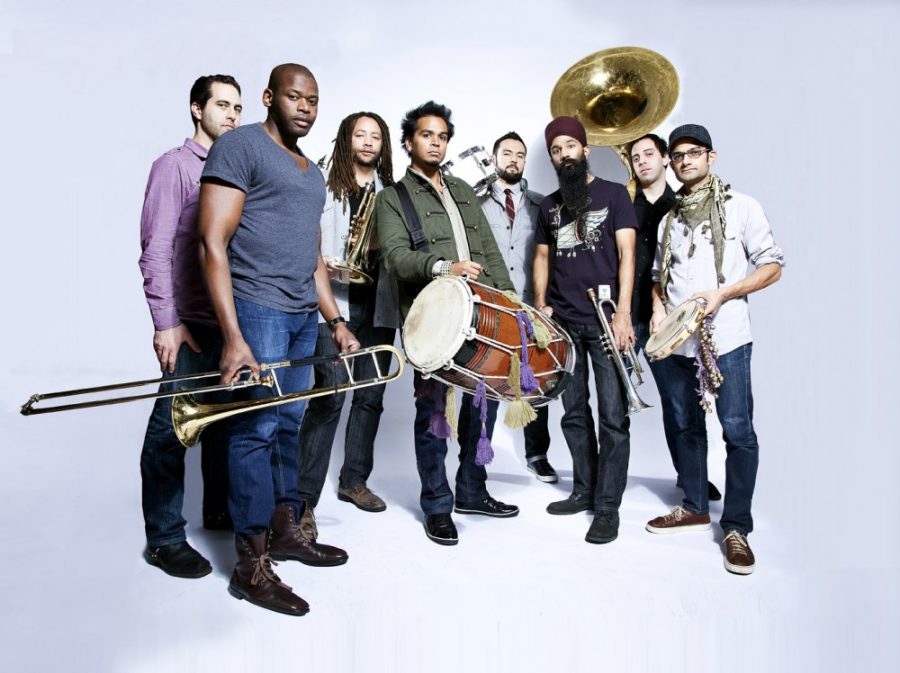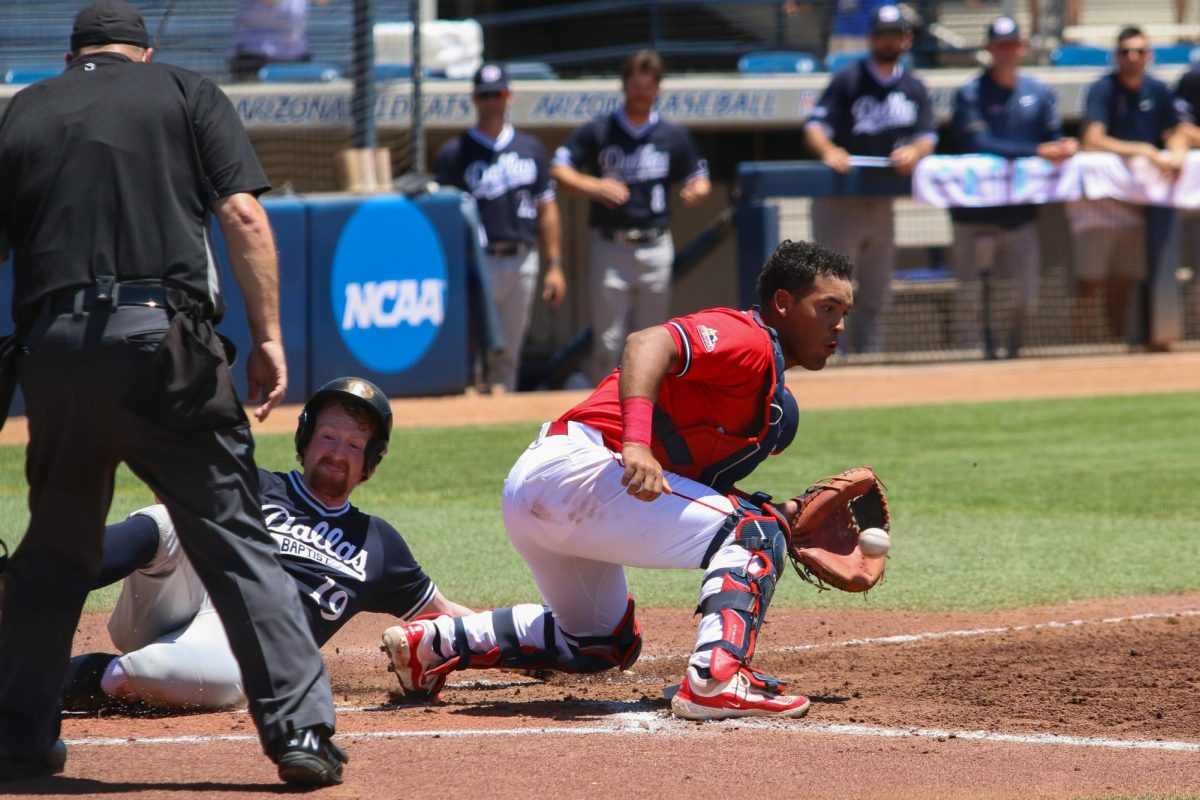After dropping its latest record in January, Red Baraat will take the stage at the Rialto Theatre on Friday as part of a fall tour that spans much of the U.S. Melding Punjabi bhangra with Western genres like jazz and hip-hop, the Brooklyn eight-piece will play Tucson for the first time since forming in 2008. The Daily Wildcat caught up with Sonny Singh, the band’s trumpeter and vocalist and a UA alumnus, to chat about his return to Arizona and the mark his band hopes to leave on the Old Pueblo.
DW: So, you’re a UA graduate. When did you graduate and what’s your degree in?
Singh: I graduated in 2001 with a B.A. in sociology and Latin American studies.
You’re originally from North Carolina. What brought you to Tucson?
My family moved to Phoenix when I was 11 years old. So, I went to high school in Phoenix. My brother went of to the U of A, and then I followed suit a few years later. Going to the University of Arizona was kind of a natural choice for me; I love Tucson as a city and it’s a great state school, which makes it affordable.
You were actually pretty deep in the Tucson music scene when you were here, fronting ska band Turban Jones for four years starting in 1997. What’s it like getting to come back and take the stage here again?
I’m really, really excited about it. This’ll be my first time playing in Tucson since 2001. I think the last show I played in Tucson was Turban Jones’ very last show, which I think was around the same day I graduated, because my whole family was in town. It’s kind of the best reason to come back — to be playing.
How does a band like Red Baraat go about fusing the various genres it’s known for? Is it just a matter of having everyone bring something to the table?
The fusion of sound that makes up Red Baraat’s sound happened pretty organically. There was an idea to have this raw party band, all brass-and-drums vibe with a lot of influences from Punjabi … and North Indian music. In the beginning, that was part of the concept of the band. Each of us in the band has a pretty vast musical background. Part of my background is playing in ska and reggae bands, so in addition to my Punjabi and Indian ancestry and Indian music ancestry and influences, I’m bringing some of my ska and reggae feel into the band — not even always intentionally.
You’ve been a longtime activist for various organizations centered on social and economic justice. How does that activism intersect with your music?
I think music and activism and music and social justice have for a really long time kind of gone hand-in-hand. Music is a way to inspire and uplift people. So, even while Red Baraat doesn’t have a particular political agenda, per se, we do have lyrics in some of our songs, and some of those lyrics do have some sort of message — whether it’s about unity or freedom or fighting for justice. But by and large, our music is instrumental and the vibe that we put out there is more an uplifting vibe. But an uplifting vibe does have a take-home message for people, which is that we’re all human beings and we’re all coming together.
What do you want attendees to your Friday show to take away from your performance?
We want people to sweat and to dance, and in doing so, we want people to leave feeling uplifted, feeling a lot of joy and feeling a lot of love. I think that’s really what this music is about. I think music at its best makes people feel joyful. Sometimes it can make people feel very sad and other emotions as well. But I think what we’re going for is an injection of love, and if people throw down with us and dance hard and have a good time, I think we’ll all be leaving pretty happy, and that’s a beautiful thing.
This interview has been edited for length and clarity.
Follow Kyle Mittan @KyleMittan









